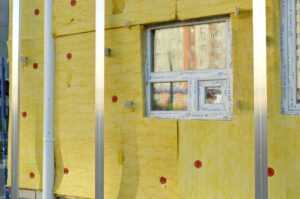Government’s decision to ‘cut the green crap’ costs taxpayers £18bn
The government’s decision to stop investing in home insulation schemes has cost taxpayers, as the measure could have saved £9 billion a year under the Energy Price Guarantee.
According to analysis by the Energy and Climate Intelligence Unit (ECIU), up to 10 million homes have missed out on home upgrades after the government decided to ‘cut the green crap’ in 2013.
In 2012, the government had managed to install 2.3 million pieces of home insulation, but this plummeted by 90% after the government decided to drop the scheme.
If the government had kept up this action, one million homes could have at least received loft and cavity wall insulation each year for a decade, making up 40% of the UK’s housing stock.
These homes would have been protected from high energy bills, as upgraded homes use 15-20% less gas and total gas demand would be around 10% lower than today, leaving them with average bills £350-£400 lower than October’s rates.

Dr Simon Cran-McGreehin, Head of Analysis at the ECIU said: ‘Cutting the green levies on bills during the last cost-of-living crisis has come back to bite the Treasury in the coffers. If it had instead shifted insulation programmes on to the Government balance sheet it would not only have made its money back, but saved the taxpayer up to £8 billion as well as trimming hundreds of pounds off the energy bills of millions of homes.
‘Taxpayers and billpayers alike will now be wondering why insulation has not really featured in Government plans to tackle the gas crisis, particularly when cold homes cost the NHS £3 billion a year. What happens next time we have a cost-of-living crisis?’
Since 24 million homes rely on gas for heating and electricity, the Treasury and taxpayers could have saved £9 billion in the first year of the Energy Price Guarantee and £18 billion over the scheme’s two-year run if prices remain high as predicted.
If a home was upgraded in 2013 this could have saved them £800 already and £1,400 by the end of 2024, as well as the £350-400 a year the government would be able to save taxpayers by lowering the price freeze.
With insulation costing as little as £1,000 per house, this would have been a popular measure with Conservative party members too, as 85% said they would support incentives and investment in improving home insulation in a survey.
The ECIU found that the party would have made the back their money invested into the scheme by the next election.
Currently, the Energy Company Obligation (ECO) scheme is helping to remedy this slightly, helping 110,000 low-income households a year to install solid wall insulation.
In related news, just half of 21 million British homes meet insulation standards set in the 1970’s, according to a study by energy supplier EDF and property data platform Sprift.
Photo by AKuptsova















